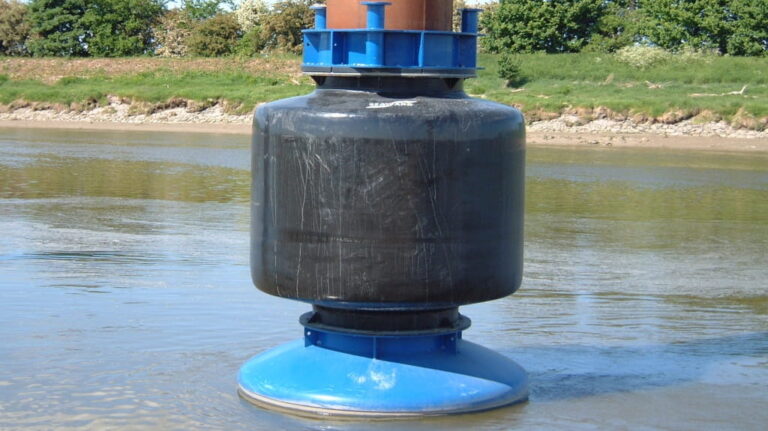Introduction
Marine fenders are essential parts of the marine sector. They are used to protect boats and buildings during berthing and mooring operations. Among the different varieties of maritime fenders, the donut fender is notable. Especially for its distinct appearance and functionality. This article discusses what a donut fender is. how it works? and the role of maritime fender producers in making this necessary equipment.
Understanding Donut Fenders
A Donut Fender is a maritime fender with a cylindrical ring-like form that resembles a donut. Unlike standard cylindrical or square fenders, donut fenders float. They spin around a fixed monopile or vertical shaft. This shape enables them to provide 360-degree protection. And making them ideal for safeguarding structures. Such as bridge piers, offshore platforms, and vertical projects against vessel collision.
- Components and Materials
Donut fenders are made of high-quality materials. It ensures longevity and efficacy in hostile maritime situations. The primary parts of a donut fender are:
- Outer shell
The outer layer is often reinforced with elastomer or polyethene. Which provides exceptional resistance to abrasion, UV radiation, and extreme weather.
- Inner core
The core is often made of foam or rubber. Which provides essential buoyancy and energy absorption.
- Rotational bearing design
This design allows the fender to spin around the monopile. Absorbing impact energy and reducing stress on both the vessel and the structure.
- How donut fenders work
Donut fenders work by allowing it to float and spin over a fixed pile. He is a step-by-step description of how it works.
- Installation
The donut fender is wrapped around a stationary monopile. That is normally attached to the seafloor. The pile functions as a central pivot point.
- Floating Mechanism
Because of its buoyancy in a core, the donut fender swims on the water’s surface. It holds its place around the monopile.
- Rotation
When a vessel collides with a fender, the fender rotates around the monopile. This rotation serves to spread the impact energy across a greater region. It lowers the force delivered to the vessel and structure.
- Advantages of Donut Fenders
Donut fenders provide various advantages over typical fender designs.
360-degree security:
Because of their capacity to spin. Monopile provides all-around security. It makes it suitable for projects that may be approached from many directions.
Durability:
High-quality materials ensure that donut fenders can survive tough maritime. Conditions like salinity, UV exposure, and physical damage.
Low maintenance:
Because of its sturdy design and materials, doughnut fenders need less maintenance. It lowers operational expenses. Donut fenders are used for various purposes, namely bridge piers offshore platforms, and berthing dolphins.
- Applications for Donut Fenders
Donut fenders are commonly utilized in the marine sector for a variety of purposes.
Bridge piers:
They safeguard bridge piers from probable vessel collisions. It guarantees the structural strength of the bridge.
Offshore platforms:
Donut fenders protect offshore oil and gas platforms from supply boats and maritime traffic.
Berthing Dolphins:
These facilities, which are used to berth huge boats, enjoy doughnut fenders all-around protection.
- The Role of Marine Fender Manufacturers
Marine fender makers are critical to the design, production, and supply of donut fenders. Their knowledge guarantees that fenders fulfil the unique needs of many nautical applications. Here is how Marine Fender Manufacturers improve the efficacy of donut fenders.
Material selection:
Manufacturers use high-quality materials that provide the durability, buoyancy, and energy absorption capabilities required for good fender performance.
Design innovation:
Continuous R&D work results in creative designs that improve the usefulness and longevity of donut fenders.
Customization:
Manufacturers give bespoke solutions to their clients’ demands, providing optimal performance in a variety of conditions and applications.
Quality Assurance:
Rigorous testing and quality control processes guarantee that donut fenders meet International requirements. And can endure the harsh conditions seen in marine areas.
Installation support: Manufacturers frequently provide installation and Technical assistance to guarantee that donut fenders are fitted correctly and work properly.
Conclusion
Donut fenders are important to marine safety, protecting many structures from vessel strikes. Their special design, permitting rotation around a monopile, provides energy absorption and protection benefits. Marine Fender producers play an important role in producing high-quality, long-lasting fenders that suit the marine industry’s specialized requirements.
Understanding the performance and advantages of doughnut fenders emphasizes their significance in guaranteeing the safety and lifespan of maritime constructions. As the maritime sector evolves, novel fender solutions such as the doughnut fender become increasingly important in protecting boats and infrastructure.

